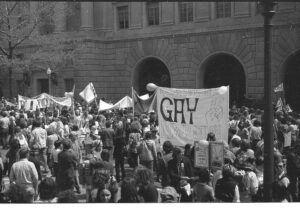Pride/Pride Month
LGBT Pride Month, often shortened to Pride Month, is typically June and is dedicated to celebrating and commemorating lesbian, gay, bisexual, and transgender (LGBT) pride. Pride Month began after the Stonewall riots, a series of gay liberation protests in 1969. Modern-day Pride Month both honours the movement for LGBT rights and celebrates LGBT culture.
The concept of Pride Month began with the Stonewall riots, a series of riots for gay liberation that took place over several days beginning on June 28, 1969. The riots started after a police raid at the Stonewall Inn, a gay bar located in Lower Manhattan in New York City. Activists Marsha P. Johnson, Sylvia Rivera, and Stormé DeLarverie are credited with inciting the riots, though Johnson disputes her involvement.
The year after the riots, the first pride marches were held in several US cities. The march in New York City, aimed to celebrate the “Christopher Street Liberation Day,” alongside parallel marches across the US, is considered a watershed moment for LGBT rights. Fred Sargeant, an organizer of some of the first marches, said the goal was to commemorate the Stonewall riots and further push for liberation. He noted that while the first marches were more akin to a protest than a celebration, they helped to remind people of LGBT communities and how they may include one’s family and friends. Transgender women and people of colour were noted to have been excluded or silenced during the early marches, despite the initial riots mainly consisting of them.

-Wikipedia
Resources:
